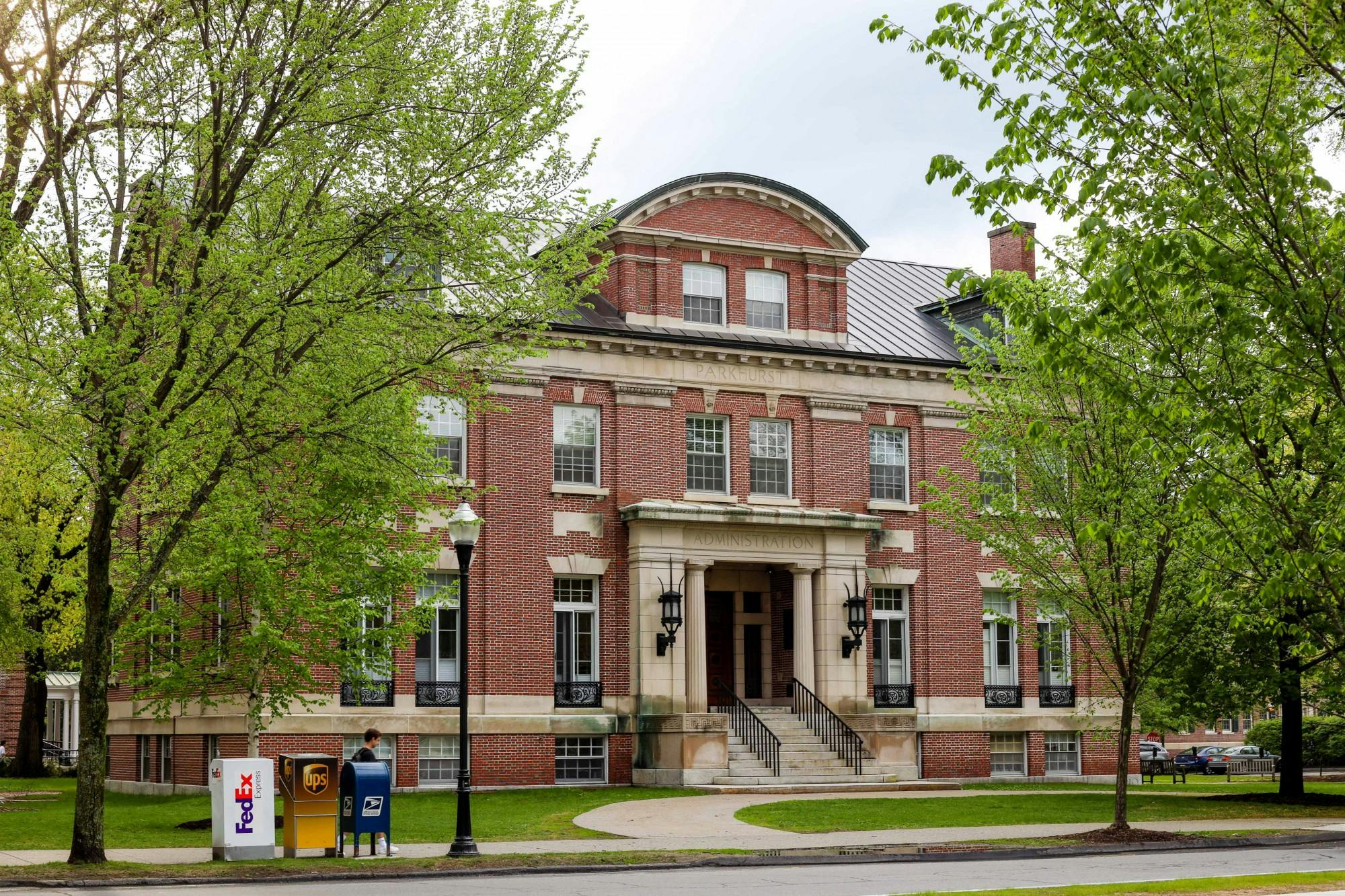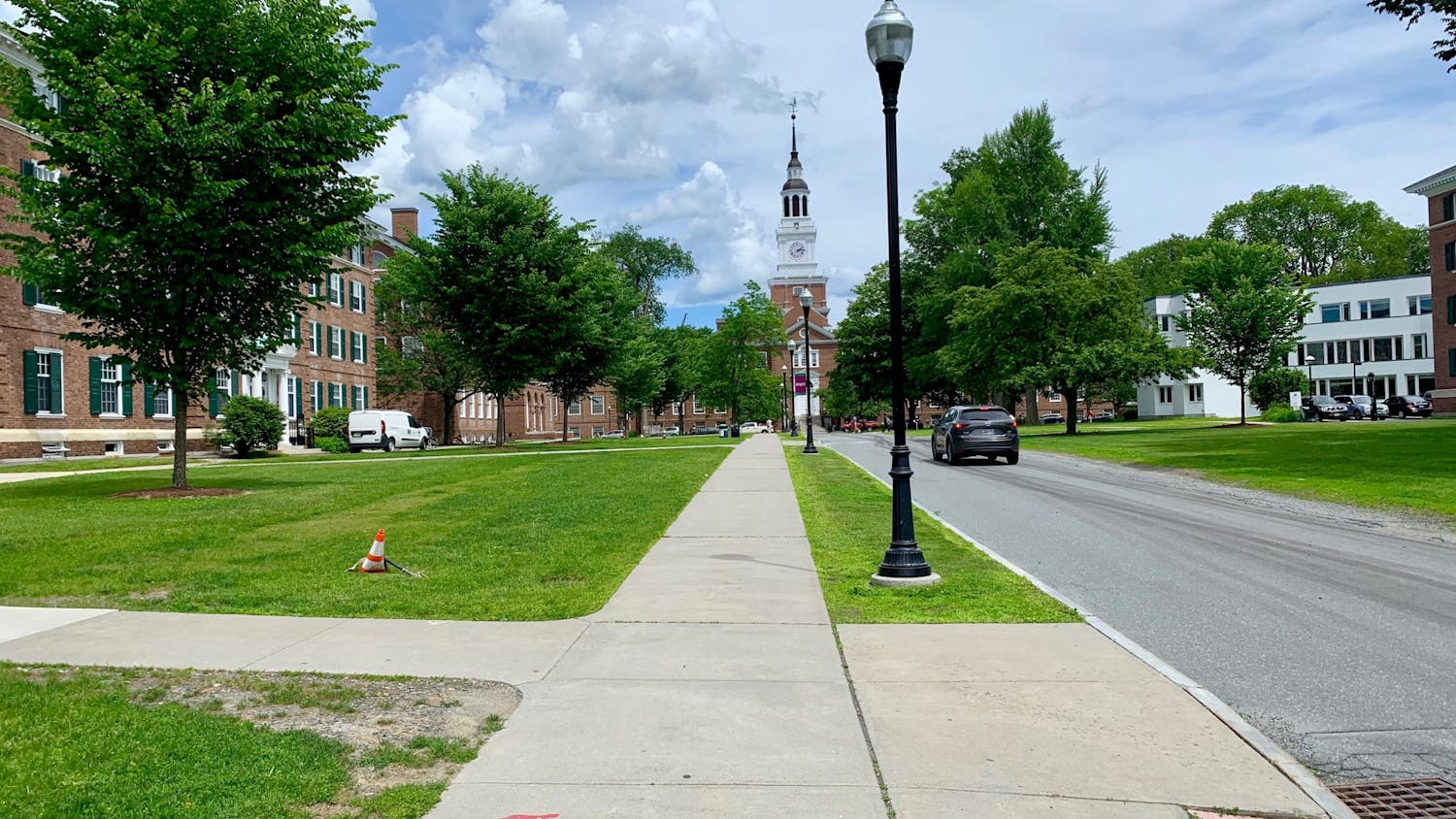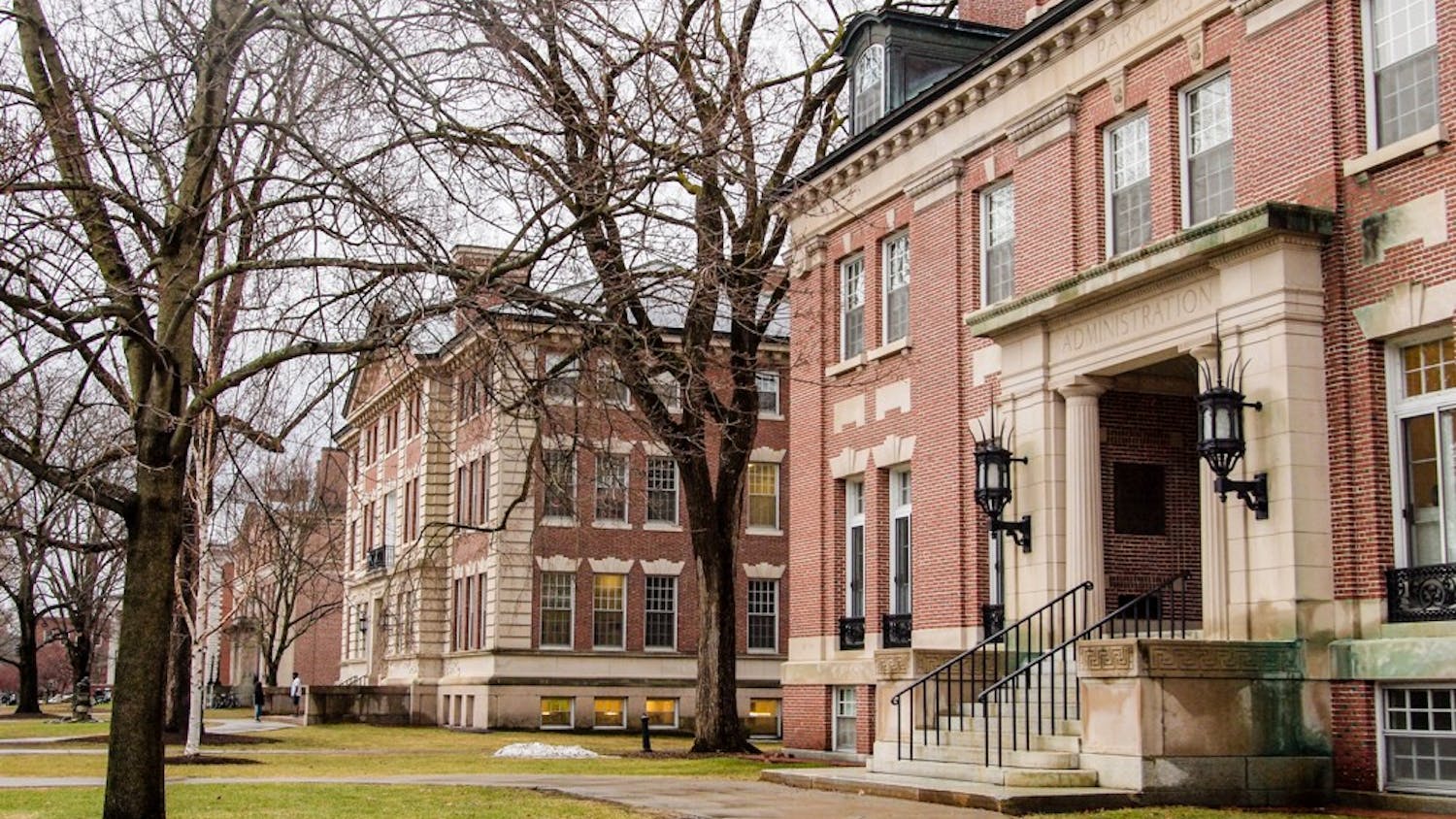As some undergraduates prepare to return to the Upper Valley in September, the College has compiled a committee of students to help administrators understand student concerns.
Students have expressed frustration over the lack of student representation in College decision-making since COVID-19 first threatened in-person learning. For example, the Dartmouth Student Union — a newly formed student advocacy group — has called for students to have a “seat at the table” since mid-March.
Nearly two terms later, the Dean of the College Student Advisory Board, a group of 12 student leaders from organizations across campus nominated by College staff, will help Dean of the College Kathryn Lively and other administrators balance safety with social life as students officially return for the first time since March.
Since the “big decisions have been made” and “most of these logistical challenges have happened,” Lively said, “now is the time to invite more people into the conversation.”
Board member Miles Battle ’21 said he feels it's an opportunity to tell administrators what students are “seeing on the ground” and hearing discussed among friends.
Student Advisory Board gets started
On Monday, the board had its second meeting. Members of the group said they’re still in the introduction and priority-setting phases, but Lively hopes they can soon dive into what she calls “cultural messaging” — figuring out how to ensure that students on campus during the fall term don’t “tank the ship” by violating protocol.
Lively said that two years ago, when Hanover issued restrictions on the Homecoming bonfire, student leaders from undergraduate advisors to the football team were “highly influential” in making sure students adhered to the new norms. Bonfires have been successful since, with no attempts by students to touch the fire.
Two years later, COVID-19 presents the same issues — ensuring that students follow College and town safety regulations.
The board members were nominated by Student Affairs staff — associate deans, graduate deans and directors — and then handpicked by Lively and associate dean for student life Eric Ramsey, Lively explained. They aimed to find student leaders who had a “wide swath of interests” across organizations. She also said her staff sought students with experience working with administration or other school officials, “who understand institutional constraints and are well-networked.”
Members of the committee include representatives from Palaeopitus, Student Assembly, the Student and Presidential Committee on Sexual Assault and the Greek Leadership Council.
Lively, who is not the final decision-maker on COVID-19 policies, will cull information from the meetings and bring it forward to Provost Joseph Helble and other administrators, she said. She added that her job is to “represent the student perspective to the senior administrators,” and to run Student Affairs.
Students on the board will also discuss social life during the pandemic, Lively said.
“Me and my staff, we could come up with all kinds of social events, but they’re going to be so much better if students do them,” Lively said.
Down the line, she said they’ll discuss budgetary changes due to COVID-19. In addition to the student board, Lively said a new faculty committee on priorities is also working with academic deans to deal with the College’s coronavirus budget fallout.
Abigail Johnson ’23, a member of the board, said that the group is focused on “what the fall is going to look like” — from social distancing guidelines to which campus facilities will be open and who will have access to them.
Johnson, the secretary of the Dartmouth Outing Club as well as a member of the club cycling team and Glee Club, also said the group will look at Dartmouth’s response to the Black Lives Matter movement and discuss how to build “a more anti-racist campus.” Battle noted that the group is racially diverse.
Battle explained that the meetings are “dual-led” by both students and Lively.
Lively said she will give students “insight into how decisions are made” and what the “stakes” and “challenges” are, and then students can share suggestions and concerns.
A late answer to a call for student voices
In a letter to administrators and the student body in March, members of the Dartmouth Student Union called for the formation of a student liaison committee. They wanted a group of students to sit on the COVID-19 task force, DSU co-founder Olivia Audsley ’21 said.
“That was our biggest goal, so that student groups don't have to be just reacting to College policy during the pandemic; they can be actively a part of shaping it,” she said.
Audsley said Lively “was not interested” in a student committee at the time.
When it comes to major decisions like whether or not a term will be taught online, Lively said, “Students can’t make those decisions.”
She said everyone, including students, are more focused on what they want in the current moment rather than the “big picture.”
“It’s an institution. It's the second biggest employer in the Upper Valley. We have relationships with the town that we have to maintain. We have to keep in mind that there is one hospital for the entire region. We have to keep in mind that there are [several] nursing homes in the Upper Valley,” Lively said.
Audsley said the board is a “step in the right direction,” but that it isn’t as high up in the decision-making process as DSU had originally hoped for.
Lively has continued to meet regularly with student groups — from Palaeopitus and Student Assembly to international student groups and the Dartmouth Student Union — throughout the last few months. She said it’s her job to listen to and advocate for students.
Over the summer, though, many of these groups have changed leadership, so Lively said she has been having “table-setting” meetings, exchanging introductions and priorities.
Students can also voice their frustrations through their elected Student Assembly members. Student Assembly compiles lists of questions to consolidate and send to the administration. Following the footsteps of previous Student Assembly administrations, current Student Assembly president Cait McGovern ’21 and vice president Jonathan Briffault ’21 have collected questions through an online form twice — in response to the 2020-2021 academic year plan, and for questions regarding the shipping and storing process.
Students call for communication, transparency
When it comes to the new board, some students are critical of the way it was assembled.
Audsley said the board is made up of students representing organizations who “already get a decent amount of airtime with the administration.”
She said organizations like Palaeopitus and Student Assembly, who have members on the committee, already have routine meetings with Lively. Meanwhile, voices from student activist circles, like members of Divest Dartmouth, the Coalition for Immigration Reform and Equality at Dartmouth or Sunrise Dartmouth, are missing.
Co-moderator of Palaeopitus Marina Cepeda ’21 said it’s “difficult” to believe the board will be able to represent the full student body when members were chosen by nomination rather than through an election.
“I am a part of [Palaeopitus], and I am in circles of privilege where I do have that direct pipeline,” Cepeda said, “but I don't think it should be up to one person which student is worthy enough to speak to [the] administration.”
Battle, who is on the football team and a member of Alpha Phi Alpha fraternity, the Greek Life Council, Shabazz, the Afro-American Society and Palaeopitus, said Lively has emphasized that the students on the board are there to provide another set of student voices, not to represent the entire student body.
“Dean Lively has made it very evident that her goal isn't for us to represent everybody else, but more so represent ourselves,” he said.
Ian Scott ’24, who is already working with the Dartmouth Student Union, said he hopes the administration will be more transparent about decision-making going forward.
He said his class is “really in search of guidance,” because there is not going to be a “single, all-clarifying message,” and it is “really overwhelming to take in all this information.”
One concrete step he’d like to see? A transcript or meeting notes from the new board.
Audsley seconds his request. “I hope it's not a closed door thing,” she said.
Lively said she is currently “in the midst of a negotiation” with students on the board about what can and can’t be shared.
McGovern said that Cornell University has been a model in transparency, releasing detailed reports from their COVID-19 committees.
“We’ve been very clear with the College that the decision-making process needs to be explained clearly to students,” McGovern said. “I hope that for decisions moving forward this information will be given to students to help us understand the logic behind certain decisions.”




